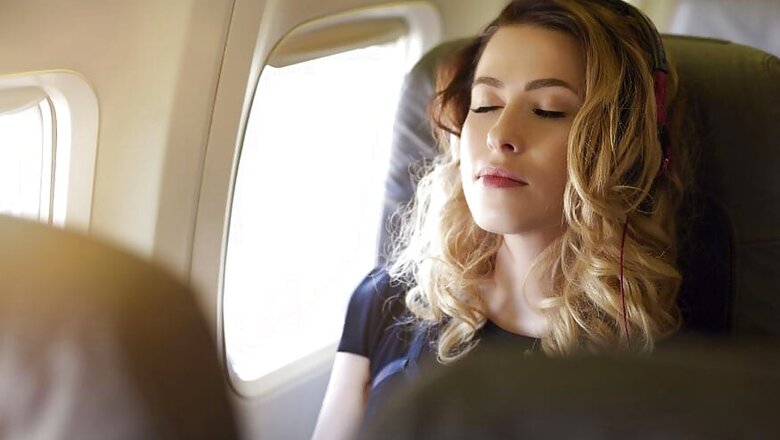
views
Are you packing your bags and jetting off to far-flung destinations? But when crossing three or more time zones, travellers can end up out of kilter with local time and suffering from jetlag.
Here are a few things travellers can try to help keep tiredness at bay and get the most out of a long-haul getaway.
Adjust bedtime before setting off
Studies show that the body clock adapts more easily when travelling from east to west, which means pushing back bedtime. When travelling east, the length of the day needs to be shortened to bring the body clock forward. One way to help the body adapt is to adjust your bedtime the day before leaving. This means going to bed one to two hours earlier when travelling east, or one to two hours later when travelling west. Flyers should also aim to set out in the best conditions by getting a few good nights' sleep before a trip. In all cases, the best option for long-distance travel is to arrive at a destination late then head straight to bed to get in sync with local time straight away.
Eat before leaving for the airport
Another trick is to eat before leaving for the airport. The idea is that the sleepy feeling brought about by digestion could help passengers get some shut-eye on the flight. Plus, it has been shown that eating big meals on board the aircraft can prevent flyers from drifting off. Some studies even suggest avoiding eating any food for the duration of the journey.
Cut down on alcohol and coffee
Alcohol is known for disrupting sleep and it won't help travellers adapt to local time on arrival. Plus, drinking alcohol at altitude makes flyers even more dehydrated. And air passengers need to drink even more water than usual to stay hydrated. It's the same story for coffee too, which keeps passengers awake when they could need to recharge their batteries with a quick nap. In fact, experts aren't opposed to the idea of taking short naps during a trip. However, naps should not be longer than 20 minutes to avoid disrupting regular night-time sleep.
Tuck into protein for breakfast
A breakfast including protein -- such as eggs, deli meats and yogurts -- can help the body stay awake and alert when visiting a long-haul destination. It will also keep tourists going during the hours of walking that inevitably await when visiting a new location.
Get up early to make the most of daylight when travelling east
The body clock has a harder time adapting when travelling east. But getting up early in the morning to make the most of daylight can help travellers adjust. This can be a great way of getting used to local time quickly while also making the most of vacation days.




















Comments
0 comment